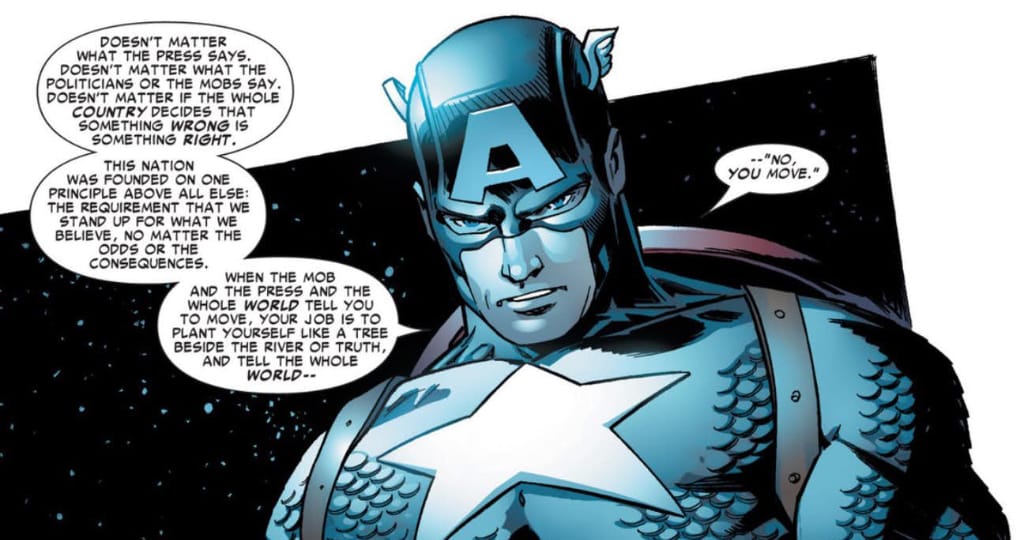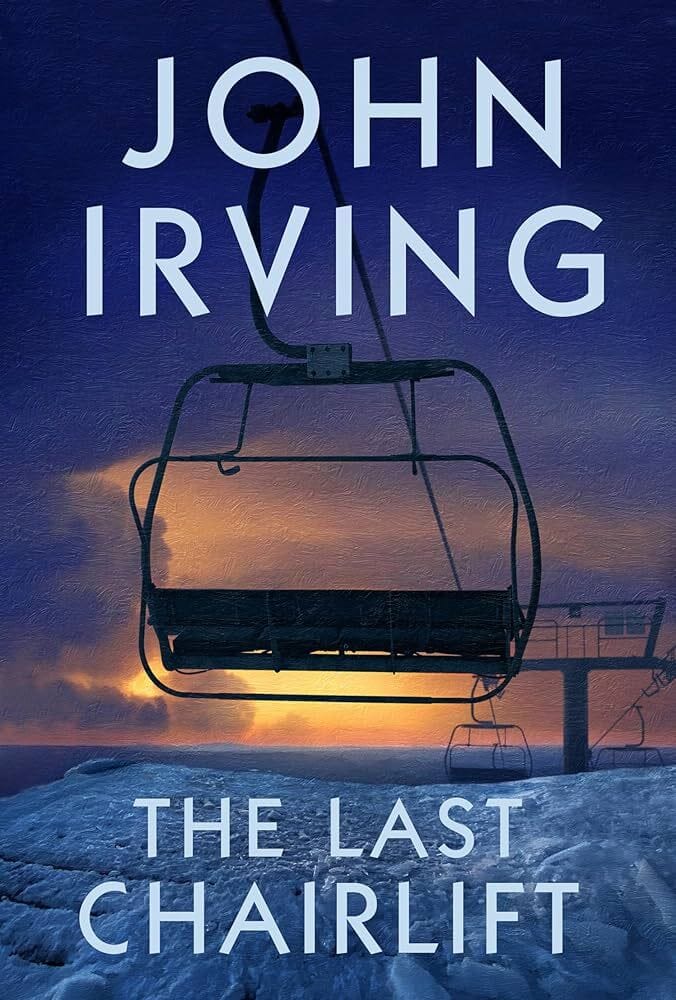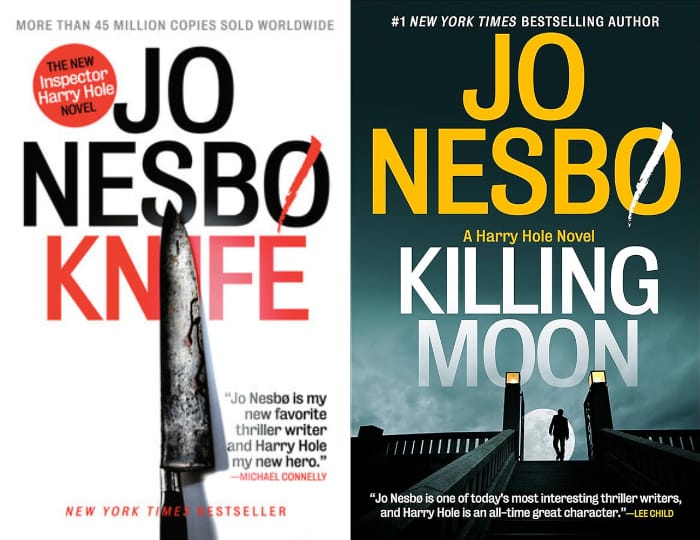- Will Remains Writing
- Posts
- The Soul Made Visible
The Soul Made Visible
Will Remains Writing for March 2025

From Amazing Spider-Man #537; J. Michael Straczynski, Ron Garney, Bill Reinhold
Cycling between false spring and winter’s remnants here on the 12th floor, though by the time you read this, we might have passed into actual spring. That usually means lots of rain and overcast days, but the temperature is a bit higher and the sun lingers a bit longer, so it’s a start.
Warmer weather usually ushers in more crime in Baltimore, but so far our murder rate is down by one-third, comparing year to date, and 2024 was down 23% compared to 2023. Fingers crossed that we have a relatively peaceful year, though I’m tempted to send someone to check on our local criminal element. Y’all doing ok? You don’t seem to be murdering like usual. Everything good?
Maybe everyone is simply worn out. It’s been a minute since the nation has had a chance to take a deep breath. The sky isn’t the only thing alternating between feelings of winter and false spring.
Hard times arouse an instinctive desire for authenticity. - Coco Chanel
Authenticity is a recurring theme on the blog. Initially, my intent was to explore my inner life and find more purpose and peace of mind, partly by exploring a process called Conscious Living. I wanted to feel more centered and in-the-moment, less anxious and regretful. Because my writing is so central to my person, it is obvious in retrospect that I would start to apply the lessons of authenticity to my creative expression. Living in the moment, acknowledging your weaknesses, asking for help, being open to criticism, and adapting to setbacks in a healthy way are all vital to the creative life.
Also, for the writer, many elements of character and story can be viewed through the pursuit of authenticity. Characters struggle (create plot) when they are out of integrity with themselves, and success often rests on their ability to realize their true, authentic selves. Understanding that journey within can only help a writer portray that story externally, on the page.
It is also important to me to make authentic creative choices and act in integrity with myself. In my posts, I frequently quote Fred Rogers - “There’s only one you.” - usually followed by a few rhetorical questions about the point of creating, if you aren’t willing to be fully yourself when you do it.
Last month, I wrote a few pieces on how I interpret authenticity in writing - see the links below. In short, it’s a simple and yet as fraught as being yourself. Simple, in that acting as yourself should come naturally, but fraught in that life teaches us to pretend. Being authentic means exposing your thoughts, emotions, experiences, and philosophies to the public eye, and we know how people like to criticize. It feels easier to hide what we feel and believe, particularly when the mob or our friends don’t agree, but we shouldn’t.
The list of writers certainly wasn’t exhaustive and your opinions of their authenticity or courage may differ from mine. But I love them and admire them, and hope that, if called, I can in my own way stand as tall as they did in defense of their authentic work.
Patricia Highsmith was warned not to publish The Price of Salt, but she did anyway, though under a pseudonym. In death, she is often vilified as a misanthrope, and I’m confident she would not GAF. I’m also certain that John Rechy and Julie Powell gave their editors fits when they revealed so much of themselves in City of Night and Cleaving. Howard Chaykin frequently discusses how his work is bashed by the fringes of both the right and the left. The man can’t win…except with his fans. And his publishers. And Hollywood. And with his conscience. When Alan Moore talked about moral authorship and being treated fairly by his publishing partners, comics fandom told him to shut up and be grateful he was “allowed” to write comics. And now he doesn’t, but is none the worse for wear. We are, but he’s better off without us.
Like good old Captain American in the header, being authentic also means standing alone when you have to. That scenario doesn’t happen too often for fiction writers, but when it does, we should prepared to act in integrity with ourselves - being honest, authentic, and standing for what we believe, in our personal lives, our business, and our art.
Heroes are never perfect, but they're brave, they're authentic, they're courageous, determined, discreet, and they've got grit. - Wade Davis
Bonus track: This song by the Indigo Girls speaks to questions of identity and courage, and the freedom to be our authentic selves, even when - or maybe especially when - we’ve lost our way.
Remember when you feel you go astray
Who made the rules for us anyway?
Yeah we get to be what we wanna be
This one has been speaking to me this past month and I’m happy to share it. Watch the video below or listen on Spotify.
Also in this letter:
Posts from March 2025
What I’m Reading
WIP News
A Parting Song
Monthly Posts
As I mentioned above, March’s theme was authentic writing. The posts speak for themselves - occasionally at length - but allow me to preface my remarks by addressing my definition of authentic.
Authenticity means much more than writing what you like, though it starts there. It means avoiding market trends and naysayers and people who say you shouldn’t follow your heart or take risks or indulge your weird interests. Creatively, there is “no law beyond Do what thou wilt.”
But it also means ignoring “what readers want” and giving them yourself. You won’t please everyone, but you may give someone something they need. Authenticity creates connection. It helps us find our tribe of like-minded individuals. Authenticity bridges differences and can help us feel less alone. Authenticity keeps us centered when the world goes mad.
Authenticity means allowing your characters to be ugly or petty or small-minded and still be the hero. It means acknowledging that humans are complex, contradictory, messy, and not altogether pleasant, but still worth loving and rooting for anyway. It means confessing that we do awful things and don’t always know the reason why. We don’t always get it right. We ask questions that have no answers. We keep trying anyway.
Authenticity means putting yourself on the page, your conflicted feelings, your observations and intrusive thoughts, your bad habits and mistakes, your philosophies and politics, your secret joys and hurts, and all the questions you scream at the sky.
Authenticity means sharing your unique, one-direction view of the human condition.
Simple, yes?
You can't deny who you are, so you might as well be yourself in the most authentic way. - Ben Hopkins
Authentic Writing: Be Ugly
Authentic Writing: Be Daring
Authentic Writing: Be Indulgent
Authentic Writing: Be Political
Authentic Writing: Be Messy
Authentic Writing: Be Evil
Authentic Writing: The Writer’s Credo
Authentic Writing: Mirrors and Arrows
Authentic Writing: Know Yourself
Authentic Writing: No Confidence Like Ignorance
What I’m Reading

Last month, in “Be Indulgent”, I discussed a few writers who put all their interests on the page. I picked two comics writers because they happened to be on my mind, but John Irving would have been an excellent example. His latest book also provides a caution that sometimes, a writer can indulge in too much of a good thing.
I assume most readers have heard of John Irving, but even if you’re not familiar with his name, you know his book titles: The World According to Garp, Hotel New Hampshire, The Cider House Rules, A Prayer for Owen Meany, and a dozen more.
Irving has a menu of thematic tics he returns to often - boys schooled at Exeter, absent fathers, high school wrestling, incest, the Viet Nam war, crossdressing and transsexualism, ludicrously bizarre extended families, accidental deaths that border on the comical. His male protagonists are often writers and almost always experience inappropriate sexual experiences in their youth, which kink their ability to have successful mature relationships in adulthood. His female characters are often smothering mothers or women who are sexually interested in underage boys, and sometimes both.
I love John Irving. He’s a solid writer, lyrical but not showy, insightful without being precious. His characters are messy and make incomprehensible but very human mistakes. They keep secrets and mistake cruelty for love. They hope for better than they get. I admire him for indulging his obsessions and his ability to approach them from different angles, so they generally appear fresh. He also has a knack for portraying even the most ridiculous situations as true to life. My favorites among his novels are his late mid-career books - A Widow for One Year (1998), The Fourth Hand (2001), Until I Find You (2005), and Last Night in Twisted River (2009).
I finally got around to his most recent book - The Last Chairlift - and this is the first of his novels where I found his schtick wearing thin. It didn’t feel so much like a novel as a string of anecdotes about a writer - Adam - and his tiresomely eccentric family: his mother, a lesbian who seduced a 14-year old boy so she can have a child with no strings attached; his lesbian cousin and her voluntarily mute lover, who are so loud during sex their orgasms can be heard throughout an entire hotel and out into the courtyard; and his stepfather, whom his mother marries as a beard and who everyone suspects is gay until he comes out as a transgender woman. The rest of the cast is rounded out by characters one might consider more or less normal, at least in comparison, though they generally are portrayed as either prudish or dimwitted.
The only heterosexual in the immediate family, the protagonist’s sexual and emotional relationships are twisted beyond credulity: He stokes a lifelong crush on his lesbian cousin’s lover and eventually allows his mother to pick out his wife. When he attempts to track down and introduce himself to his father, he instead sleeps with his father’s wife, who also more than slightly resembles his own mother. Even accepting that you’ve entered a John Irving novel, this behavior is not exactly relatable. Oedipus wasn’t this complex.
I’m harsh on this novel, but I still give Irving kudos. Though little of actual import happens, the writing held my attention well enough to make it through the book. The cast as a whole is absurdly non-traditional, but when he maneuvers one or two into a scene together, as individuals they are able to convey their convictions and heartaches. He also evokes a tender sense of loss throughout the novel, as Adam loses the people who have guided him, one by one. It’s the novel of a writer who has said enough of his own farewells and is preparing to make his own exit.
Even with a crap story, he remains a great writer. And he gets extra points for including two long passages in the form of screenplays written by the protagonist, in which Adam confesses to bad behavior he could not put in prose. I do appreciate a writer who indulges his whims.
Irving has a new book out this year, Queen Esther, the description of which makes it sound like he’s switching up his character list a bit. Though readers are due back in New Hampshire, perhaps we won’t spend as much time touring Exeter with a cast of sexual contortionists. Probably not, though.

Jo Nesbø is another writer I enjoy, sometimes despite myself. His Harry Hole series is now on its 13th book and while Nesbø can still plot up a strong mystery with enough suspense to keep a reader turning pages, he also suffers from a problem typical of book series with a single main character: ever escalating plot contrivance.
Detective Harry is an alcoholic who repeatedly falls off the wagon, with many novels opening with a scene where he has to be dragged off a bender to make a reluctant and improbable return to police work. As the series progresses, Nesbø ratchets up both the stakes and the surprises, until just about everyone in Harry’s life has been a victim of a serial killer or has committed a murder. As many cops have died on duty in Harry Hole novels than have been killed in real life in Norway in 80 years. In some novels, both victim and murderer are members of the supporting cast.
Despite all that, I enjoy the Harry Hole novels as book candy, but they do affirm my disinterest in ever writing a book series, even though that seems to be a successful path for many. Agatha Christie was able to use Poirot and Miss Marple for decades because her detectives dropped into and out of communities with the crime. It never mattered that they never evolved, other than slowly aging. Modern readers want more from their series characters - relationships and love interests and personal danger and ever-increasing stakes - but this forces a novelist to engage in a kind of writerly chicanery I find boring. He has to provide the illusion of change - to ensure he has a character to return in the next book - while also ramping up the threats and repercussions to make this novel feel different from the last. That’s one thing if you’re writing Superman, quite another if your character is a bit closer to human.
Tana French’s Dublin Murder Squad series avoided this by having a different detective lead each novel. She also paused the series after six novels to write stand-alone works, though her latest novel is a sequel to one of them. Martha Grimes threaded this needle very well in her Richard Jury series, which inexplicably is not available in nice paperback editions, but only as weirdly proportioned mass market paperbacks. Like Christie, Grimes’ books can be read out of order. However, the reader observes just enough of Jury’s personal life in the background to make reading them in order a more rewarding experience. I haven’t read all the Jury novels, but I don’t recall any in which his fellow policemen or his girlfriend are chased down by a mad serial killer with steel vampire teeth. There’s something to be said for old-fashioned crime.
WIP News
I may have overdone it on the blog this month, because I didn’t make too much progress on my novel. However, I heeded my own recommendation and spent time in contemplation to develop my writer’s credo.
A manifesto is always a work in progress. It’s never really done, because our views and beliefs change over time. What is important to us evolves as we age. Old concerns fade and new ones arise. That said, I put a good crack in it.
It felt good. Nothing I wrote surprised me, but putting it down on paper - I wrote longhand, not on the laptop - forced me to consider my thoughts, opinions, and experiences in a different way. I couldn’t rely on gut feeling. I had to wrap my beliefs in language and, seeing them in black and white, I had to be sure I said what I truly believed. Feelings can be vague; writing cannot.
As I wrote, I felt more connected to my writing. I felt a larger sense of purpose. I felt more convinced I have something worth saying, perhaps something someone else would benefit from hearing.
Best, I felt passionate. A simple statement beginning “I believe…” followed by a personal conviction, written in precise language, is a thing of power. If you’ve ever felt you’re only drifting through life or if current affairs have left you at loose ends, consider writing a credo. Dig into your belief system. Commit to your intentions in writing. See if you feel more authentic and in control.
A Parting Song
I leave you with this lament on unrequited love. Watch the video below or listen on Spotify.
Writing is better with a community. Let’s do it together.
You can find me on Facebook, Blue Sky, and Willremains.com.
Was this forwarded to you? Subscribe here (it’s free).
Cover image by Joshua Woroniecki from Pixabay.